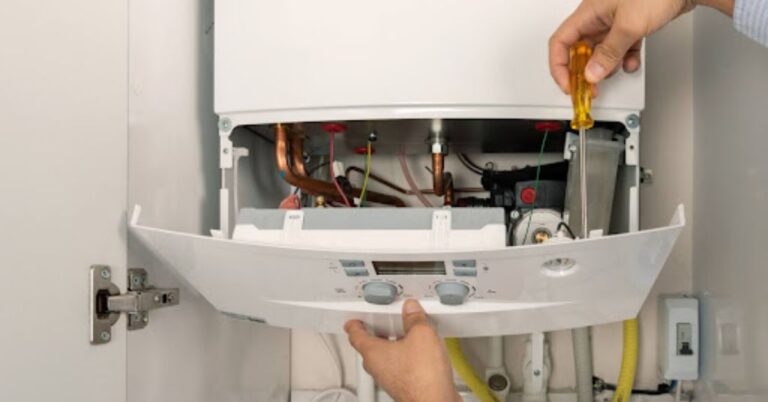For Calgary residents, a dependable hot water system is essential for maintaining comfort and convenience in daily life. Whether you’re preparing meals, cleaning dishes, or enjoying a warm shower after a long day, your hot water tank plays a critical role in keeping your household running smoothly. However, like any appliance, these systems require regular care and attention to function efficiently. Over time, wear and tear can lead to issues such as inconsistent water temperatures, strange noises, or even leaks.
Table of Contents
- Understanding Your Hot Water System: Types and Functions
- Signs Your Hot Water Tank Needs Repair
- Steps to Take When Facing Hot Water Issues
- Tips for Maintaining Your Hot Water System
- Conclusion: Staying Comfortable Year-Round
Imagine starting your day without a warm shower or trying to wash dishes with icy cold water. For Calgary residents, especially during harsh winters, hot water is more than just a convenience—it’s a necessity. From morning routines to evening relaxation, a dependable hot water system plays a vital role in maintaining household harmony.
However, like any appliance, these systems require care and attention. Over time, wear and tear can lead to inefficiencies or complete breakdowns. That’s why staying informed about your hot water system—and knowing when to call in professionals—is key to avoiding disruptions. Partnering with skilled technicians for services like hot water tank repair Calgary secures your system remains in top condition year-round.
In this guide, we’ll explore everything you need to know about hot water solutions, from understanding different system types to recognizing signs of trouble. Let’s dive in and secure your home stays cozy no matter the season.
Understanding Your Hot Water System: Types and Functions
Not all hot water systems are created equal. Depending on your household size, budget, and energy preferences, different systems offer varying benefits. Understanding the type of system installed in your home is the first step toward securing its longevity and efficiency. Let’s break down the most common options available to Calgary residents:
Conventional Storage Tank Systems
These are the traditional workhorses of hot water supply. A storage tank system heats and stores water continuously, keeping it ready for use whenever needed. While they’re cost-effective upfront and ideal for larger families, they can lose efficiency over time due to standby heat loss. This means energy is wasted as the water sits unused in the tank.
Tankless (On-Demand) Systems
As the name suggests, tankless systems heat water only when you turn on a tap or appliance. This eliminates the need for a bulky storage tank and significantly reduces energy consumption. Though they come with a higher initial investment, their long-term savings and durability make them an attractive option for smaller households. Plus, they provide endless hot water—perfect for busy mornings!
Hybrid and Solar-Powered Options
For environmentally conscious homeowners, hybrid and solar-powered systems are gaining popularity. These models combine conventional heating methods with renewable energy sources, such as solar panels, to maximize efficiency. While they may require a moderate upfront cost, their eco-friendly design and long lifespan appeal to those looking to reduce their carbon footprint.
To help you compare these systems at a glance, here’s a quick overview:
| Feature | Storage Tank | Tankless | Hybrid/Solar |
| Initial Cost | Low | High | Moderate |
| Energy Efficiency | Moderate | High | Very High |
| Lifespan | 10-15 Years | 20+ Years | 15-20 Years |
| Best For | Large Families | Small Households | Environmentally Minded Users |
Signs Your Hot Water Tank Needs Repair
A hot water system is designed to operate quietly and efficiently in the background, but when something goes wrong, the signs are often hard to ignore. Ignoring these warning signals can lead to more significant issues, including complete system failure or costly replacements. Here are some common indicators that your hot water tank may need professional attention:
- Inconsistent Water Temperature
If you’re experiencing fluctuating water temperatures—such as scalding hot one moment and lukewarm the next—it could signal a problem with the heating element or thermostat. This inconsistency can disrupt daily routines and indicates that your system isn’t functioning optimally.
- Strange Noises Coming from the Tank
Unusual sounds like rumbling, popping, or banging often point to sediment buildup inside the tank. Over time, minerals in the water settle at the bottom, causing overheating and inefficiency. Addressing this issue promptly can prevent further damage.
- Leaks or Pooling Water Around the Unit
Water pooling around the base of your tank is a red flag. It could indicate a cracked tank, loose connections, or a failing valve. Even small leaks should be inspected immediately, as they can escalate quickly and cause water damage to your home.
- Rusty or Discolored Water Flowing from Taps
When your hot water appears rusty or discolored, it might mean corrosion inside the tank or pipes. Corrosion compromises the structural integrity of your system and requires urgent repair or replacement to avoid contamination or leaks.
- Increased Utility Bills Despite Normal Usage
A sudden spike in energy costs without a change in household habits could suggest your hot water tank is working harder than usual. Inefficiencies due to wear and tear or malfunctioning components can drive up your bills unnecessarily.
- Foul Odors or Metallic-Tasting Water
Unpleasant smells or unusual tastes in your water supply may indicate bacterial growth or rust within the tank. Both scenarios require immediate action to safeguard your family’s health and your plumbing system.
Steps to Take When Facing Hot Water Issues

When your hot water system starts acting up, it’s essential to act quickly and methodically. Addressing the problem promptly can prevent further damage and make sure your household routines remain uninterrupted. Follow these steps to navigate the situation effectively:
Turn Off the Power Supply
Safety should always come first. If you suspect an issue with your hot water tank, turn off the power supply immediately. For electric systems, switch off the breaker; for gas-powered units, shut off the gas valve. This precaution prevents electrical hazards or gas leaks while you assess the situation.
Check for Visible Leaks or Blockages
Inspect the area around your hot water tank for signs of water pooling, dampness, or visible cracks. Look for loose fittings, corroded pipes, or damaged valves that might be causing leaks. If you spot anything unusual, avoid touching or tampering with it—this is best left to professionals.
Test the Thermostat and Heating Elements
If your water isn’t heating properly, the thermostat or heating elements could be to blame. Check the thermostat settings to secure they’re configured correctly. While testing these components yourself might seem tempting, improper handling can cause further issues, so it’s wise to consult a technician.
Contact a Licensed Technician for Inspection
Once you’ve taken preliminary safety measures, reach out to a licensed professional for a thorough inspection. Skilled technicians have the tools and expertise to diagnose the root cause of the problem accurately. Whether it’s sediment buildup, a faulty valve, or something more complex, they’ll provide solutions tailored to your needs.
Document the Problem for Future Reference
Keep a record of the symptoms you’ve observed, such as strange noises, leaks, or inconsistent temperatures. Providing this information to your technician can help them pinpoint the issue faster and recommend appropriate repairs or replacements.
Tips for Maintaining Your Hot Water System
Preventive maintenance is the key to extending the lifespan of your hot water system and avoiding unexpected breakdowns. By adopting a few simple habits, you can keep your unit running efficiently and reduce the likelihood of costly repairs. Here are some practical tips every Calgary homeowner should follow:
Schedule Annual Inspections by Certified Technicians
Regular check-ups by licensed professionals can catch minor issues before they escalate. During these inspections, technicians will test the thermostat, examine valves, and secure all components are functioning correctly. This proactive approach helps maintain optimal performance year-round.
Flush the Tank Regularly to Remove Sediment Buildup
Over time, minerals in the water can settle at the bottom of your tank, forming sediment that reduces efficiency and causes strange noises. Flushing the tank annually removes this buildup, allowing your system to heat water more effectively. If you’re unsure how to do this safely, consult a professional.
Insulate Pipes to Reduce Heat Loss
In colder climates like Calgary, uninsulated pipes can lose heat quickly, especially during winter months. Wrapping exposed pipes with foam insulation not only conserves energy but also prevents them from freezing in extreme temperatures. This small step can make a big difference in your system’s efficiency.
Test the Pressure Relief Valve Periodically
The pressure relief valve is a critical safety feature that prevents excessive pressure buildup inside the tank. To make sure it’s working properly, lift the lever gently and allow some water to flow out. If no water comes out or the valve doesn’t close tightly afterward, it may need replacement.
Adjust the Thermostat for Energy Savings
Setting your water heater’s thermostat to 120°F (49°C) strikes a balance between comfort and energy efficiency. Higher temperatures increase energy consumption and the risk of scalding, while lower settings may not provide sufficient hot water. Experiment with different settings to find what works best for your household.
Monitor for Early Warning Signs
Stay vigilant about unusual changes in your system’s performance. Whether it’s inconsistent water temperature, strange noises, or increased utility bills, addressing these signs early can save you time and money in the long run.
Conclusion: Staying Comfortable Year-Round
A reliable hot water system is the backbone of modern living, particularly in cities like Calgary where winters are long and unforgiving. From morning showers to evening dishwashing, consistent access to hot water secures your household runs smoothly. However, maintaining this comfort requires proactive care and attention.

